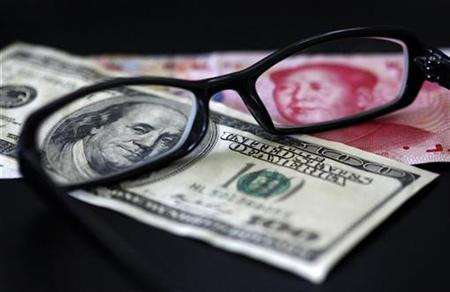Wearing eyeglasses could lower the risk of getting coronavirus: Study
Medical professionals are now required to wear goggles or a face shield along with a mask to fully protect them while attending to patients.
People who regularly wear glasses could be at a lower risk of getting the coronavirus. Researchers in China have analysed hospital data of COVID-19 patients and noticed that only a few of them regularly wore glasses. The study involving 276 patients in a hospital in Suizhou, Zengdu showed that only 16 of the patients were required to wear eyeglasses for more than 8 hours a day.
Given this rate showing 6 percent of the sample study with diagnosed myopia, researchers observed this "could be a preliminary evidence" that daily wearers of eyeglasses are less susceptible to coronavirus infection.
According to Dr. Yiping Wei, an author of the research study , eyeglasses could be a key artillery in fighting COVID-19. Wearing them deters people from touching their eyes, thus, avoiding the possibility of transferring the virus. The same observation has been made in Wuhan since the outbreak began in December 2019, the New York Times reports.
Experts say it is too soon to draw conclusions from these observations to require people to start wearing eye protection in addition to face masks. Eyeglasses may act as a partial barrier to protect the eyes from cough and sneeze splatters but it could also be a deterrent for habitual rubbing and touching of one's eyes.
In another study published in 2015, a behavioural observation was undertaken on 26 medical students at the University of New South Wales regarding hand hygiene. Results showed that students watching a one hour lecture touched their eyes, nose and mouth an average of 10 times. However, researchers were not able to note the difference on those who wore glasses.
Dr, Amesh Adalja, a senior scholar with the Johns Hopkins Centre for Health Security, in Baltimore said, "This needs to be confirmed with other observational studies, for example, face shield use. However, it is increasingly being noted that eye protection is important."
Many hospitals now require doctors, nurses and visitors to wear goggles or a face shield along with a mask to fully protect them while attending to patients.
However, Dr. Lisa Maragakis, an infectious disease specialist at Johns Hopkins School of Medicine still urged for caution in interpreting these findings. "What remains to be investigated is whether eye protection in a public setting would add any protection over and above masks and physical distancing," she said.

© Copyright IBTimes 2025. All rights reserved.





















